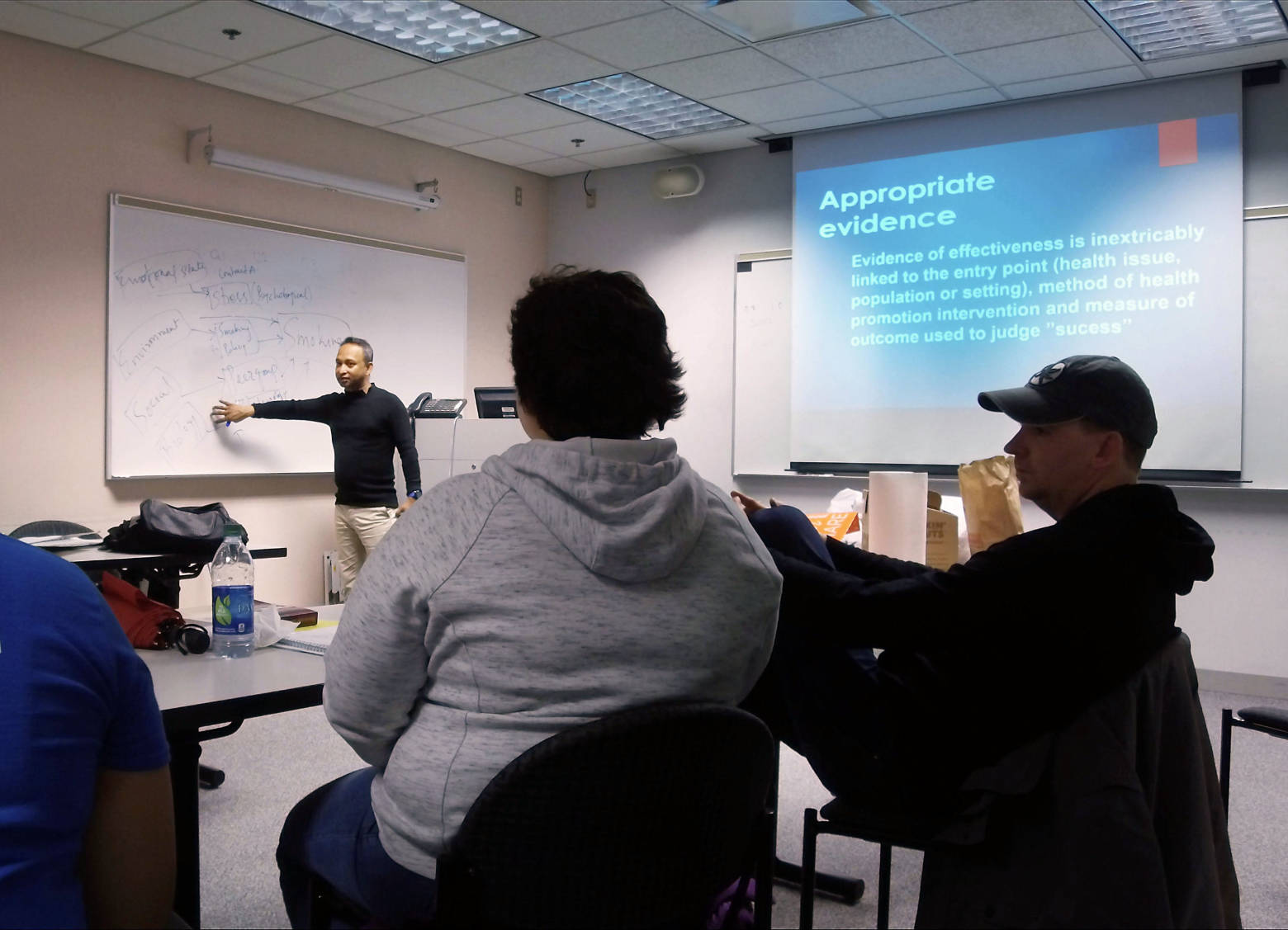Master of Public Health
- Now Enrolling for Spring 2024!
- 8 Semesters, Part-Time (2-3 years)
- Hyflex Online & In-Person Options
- Cohort Model (15-20 students)
- Admissions, Financial Aid & Tuition
Overview
Protect communities, prevent disease and promote public health equity with a Master of Public Health (MPH) from Baldwin Wallace University. BW’s exceptional faculty bring real-world skills and highly regarded academic credentials to prepare students to impact population health within health care, business, government, non-profit and community settings.
Designed for working professionals, Master of Public Health students can attend courses either in person or virtually, plus concentrations in Population Health Leadership & Management, Health Education & Disease Prevention, Epidemiology and Health Informatics.
Structure
The MPH program begins each August and is offered part-time to accommodate working professionals.
Students have the ability to interact in-person and online, to accommodate busy lives and schedules without missing out on rich engagement with faculty and cohort peers. Students can choose from in-person or online synchronous and asynchronous sessions.
Classes meet Friday evenings and Saturday mornings (two alternate weekends a month) on The MetroHealth System campus in Cleveland. Online students can complete the sessions at any time during the directed timeframe. Typically, it takes 2-3 years to complete this graduate program.
Credit Structure (45 credits)
- Core Courses: 22 credits
- Concentration: 15 credits
- Electives: 3 credits
- Practicum/Research: 4 credits
- Capstone: 1 credit
Curriculum & Concentrations
Your MPH coursework will be both academically rigorous and career-relevant. Our curriculum is rich in applied experiences, collaborative learning, research, advanced public health theory and practice strategies. Class sizes are small enough to allow faculty to provide students with individualized attention.
Our first-year curriculum is both streamlined and comprehensive to ensure you will be ready to advance into the concentration of your choosing and create your culminating capstone experience.
Population Health Leadership & Management Concentration
This concentration prepares students with critical leadership and management tools needed to address the evolving health care needs of diverse populations. Students in the Population Health Leadership & Management concentration are required to have a minimum of two years of prior work experience in public health or health care sectors to be eligible for admission.
Health Education & Disease Prevention
This concentration offers programs of study to help students acquire advanced methods for assessing community health needs and developing and implementing disease prevention strategies to promote better health. Prior work experience is not required to apply for this concentration.
Epidemiology
This concentration prepares students to approach population health issues by applying evidence-based epidemiologic methods and tools. Students will learn a broad range of quantitative data analysis techniques to examine the causes and preventive approaches of diseases and evaluate the effectiveness of population health programs. Prior work experience is not required to apply for this concentration.
Health Informatics
Students in this concentration will learn modern techniques and approaches to dive into the world of big data in population health and the healthcare industry. Students will learn different, high-demand skills, including data visualization, data mining, testing relationships among variables using path diagrams, statistical modeling, and making predictions. Students will gain hands-on experience using mainstream software and technologies used in various public health problems, such as ArcGIS Desktop, SAS, JMP Pro, Tableau, R Studio, and Python. Prior work experience is not required to apply for this concentration.
Applied Learning: MPH Practicum & Capstone
All students enrolled in the Master of Public Health program will participate in a formal practice placement experience or research projects and a culminating experience that incorporates a wide range of population health topics and settings.
Practicum
Students will seek a minimum of 240 hours of supervised placement experience or an applied research component with guidance from the MPH faculty. This will constitute the first component of applied learning and ground students in “real world” applications to solve population health issues and provides service to the community.
Culminating Experience (Capstone)
The second component of the applied learning component is the intensive culminating experience. The culminating experience is intended to allow students to address a public health question or issue of their interest that draws from their academic experience. It provides students with the opportunity to apply, integrate and synthesize knowledge and experience obtained during their academic course of study to a question or problem of public health relevance. In some cases, the culminating project idea or opportunity may evolve from the student’s practice placement experience. The culminating experience has three primary components: a proposal, a written applied project paper and an oral presentation.
Developed in Partnership with the MetroHealth System
The BW MPH program was the first interdisciplinary program in Ohio jointly developed by an academic institution (BW) and an essential health system (The MetroHealth System) with the aim of reducing health disparities and advancing population health.
REQUEST MORE INFORMATION
Clicking the “Learn More” button above constitutes your expressed written consent to be emailed, called and/or texted by Baldwin Wallace University and its educational partners at the address(es) and number(s) you provided, regarding furthering your education. You understand that these messages may be generated using an automated technology.

